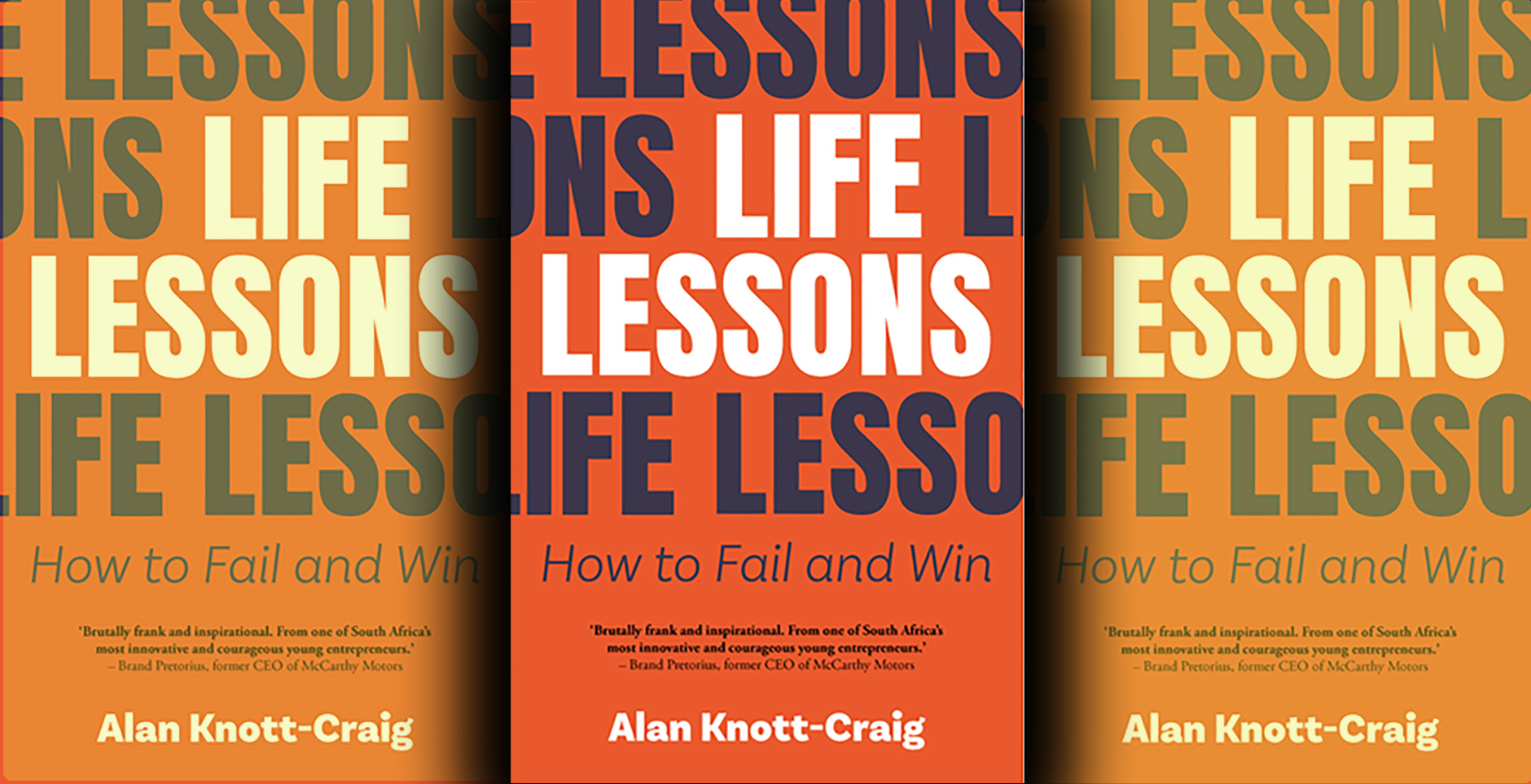Alan Knott-Craig Jnr, who has founded, funded and/or run more than 20 companies including Fibertime, Mxit, Cellfind and Hero Telecoms, has battled failure, desperation and a bruised ego in his journey to becoming a successful entrepreneur. His tour of duty in the trenches of capitalism have taught him a thing or two about what it takes to succeed and he recently shared his experiences and advice in a live journalism Daily Maverick webinar, hosted by Business Maverick editor Neesa Moodley, where they discussed his latest book, Life Lessons: How to fail and win.
https://www.youtube.com/watch?v=4-h2jxq4t4M&t=1s
Get busy failing
Knott-Craig is no stranger to failure. In 2011, he bought the instant messaging app Mxit, which he says failed because of poor strategy, a flimsy business model and tough competition. He walked away from Mxit with a tarnished reputation as a “weapon of mass financial destruction” and a battered ego.
“I would have liked to have maybe tried positioning ourselves a bit more differently, which … would have required a bit less ego,” he said.
Shortly after his Mxit debacle, Knott-Craig told his “sob story” to the Irish billionaire Denis O’Brien – famous for founding telecoms company Digicel.
O’Brien’s response?
“You need to harden the fuck up.” It was crude advice, but it has stood Knott-Craig in good stead over the years as an entrepreneur. “It’s very true,” he said. “It’s going to be a bit unfair, and things aren’t going to go your way, and people are going to bully you.”
The truth is, part of being an entrepreneur is facing rejection and failure. If there’s one piece of advice that Knott-Craig can give, it is: get used to it.
“[Dealing with rejection] is just a muscle. Everything’s a muscle,” he said. “Overcoming your fear of rejection is a muscle. The way you learn to deal with rejection is: you get rejected. You don’t do it by reading books or meditating or praying.”
 Alan Knott-Craig Jnr. (Photo: Supplied)
Alan Knott-Craig Jnr. (Photo: Supplied)
Stay honest
“I have come to the conclusion in my career that honesty is the best policy. I have, many times in my life, told fibs and lies, and exaggerated things, and I’ve regretted it afterwards,” he said.
Knott-Craig said he’s realised through a process of elimination, that it’s always better to stay in the light, and to tell the truth – while being diplomatic, of course.
This can become difficult when raising capital, which can be a morally dangerous time for an entrepreneur. You start to intuit what people want from you, and adjust your personality accordingly; which only makes them more inclined to dislike you once your true personality is revealed.
“The other thing is, when you’re very desperate, you have to be very careful,” he said.
When he was scrambling and struggling to raise capital for a free-WiFi project in Tshwane, Knott-Craig came dangerously close to approaching the Guptas, who had a reputation for having lots of money and few friends.
“It was still the early days of #statecapture. People didn’t know what was going on, but there was definitely a faint stench emanating from the Gupta family,” he writes in his book.
He actually got as far as arranging a meeting with Atul Gupta, and flew to Joburg but en route to the meeting, his stepmother called to tell him his father had suffered a stroke. The meeting was cancelled and never rescheduled. “Sometimes the universe can be obvious,” he writes.
“That’s like a classic example, like, if you’re a little too desperate in these situations, you go down the wrong path,” Knott-Craig told Moodley.
Advice for aspiring entrepreneurs
Knott-Craig can’t separate his success from his privileged background as the son of two white parents during apartheid, one of whom became the CEO of Vodacom.
“I got lucky, and I made the most of my luck,” he openly acknowledges, adding that having the same name as his well-known father opened doors in the business world that might otherwise have been closed to him.
Bearing his father’s name had a protective effect on Knott-Craig, and his father’s good reputation made people more willing to do business with him when he entered the ring. Nonetheless, he’s had to learn most of his lessons himself.
One of the best motivators for an entrepreneur to survive the daily grind is to make sure that your project has a meaningful purpose, Knott-Craig said.
“You’re actually helping other people, you’re trying to be helpful, you’re trying to make the world a better place around you; that’s a very helpful thing for getting you motivated,” he said.
When Knott-Craig’s ego took a nosedive after Mxit, the venture that got him off the ground was Project Isizwe, a non-profit that aims to bridge the digital divide by offering high-speed internet to disadvantaged schools.
“It had a great mission, and helped me get back in the game, you know,” he said.
As for which markets aspiring entrepreneurs should try to penetrate, Knott-Craig’s advice is to look at which industries sport the highest profit margins, rather than the highest total revenue. An entrepreneur is like a mosquito, he says – rather than trying to look for a vein, rather look for the biggest, juiciest artery you can find. DM




 Alan Knott-Craig jr.(Photo: Supplied)
Alan Knott-Craig jr.(Photo: Supplied)